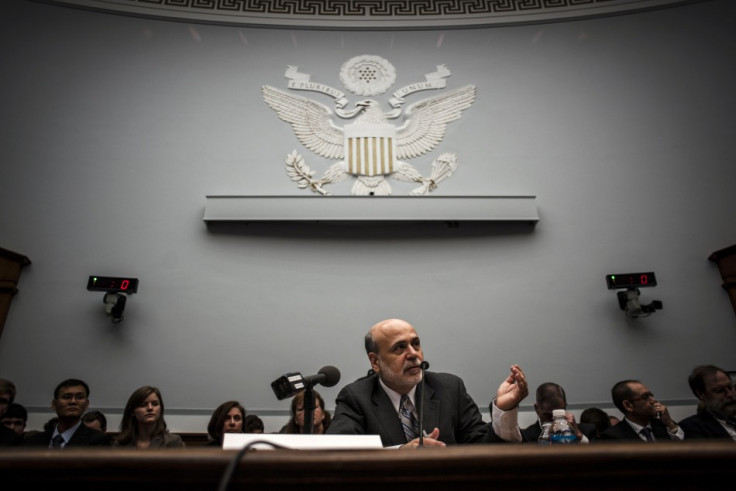Fed Likely to Keep Stimulus as Global Markets Await Policy Statement

The US central bank will decide on whether to continue its bond repurchase at the existing pace as it seeks more evidence for economic recovery to scale back its stimulus measures.
After Wednesday's policy meeting, the Federal Reserve is likely to continue its bond buyback at an $85bn monthly pace, but is unlikely to clarify when it intends to start tapering the repurchases, according to economists.
The financial markets expect the Fed to start the process beginning from September or later.
The Fed officials could spell out the possibility of scaling back purchases later this year as they would prefer to see more evidence for a full-fledged recovery in the job market.
The bank had earlier vowed to hold rates near zero until the unemployment rate hits 6.5%, as long as inflation does not rise above 2.5%.
The central bank's statement after about its decision on the matter is expected at 6:00 pm GMT.
"I expect that sentiment (of leaning toward a reduction in purchases later this year) to work its way into the policy statement. But they have to be careful because the market has not reacted well to hints of tapering," said Scott Brown, an economist at Raymond Jones in St. Petersburg, Florida.
Reduced risk-taking following market speculation about the stimulus cut has probably eased concerns on the Federal Open Market Committee (FOMC) that bond buying known as quantitative easing (QE) may trigger financial-market instability, according to some analysts.
Signs of investor caution will "quiet some of the discomfort with QE, and make some people on the FOMC more patient" about the timing of a reduction in purchases, Julia Coronado, chief economist for North America at BNP Paribas in New York, told Bloomberg.
Talks of Stimulus Cut
In the wake of the financial crisis, the Fed benchmark interest rates to almost zero and announced stimulus worth about $3.6tn (£2.4tn, €2.7tn) via three massive rounds of bond buyback in order to hold down long-term borrowing costs.
The world's largest economy has recently been showing signs of recovery on the back of the stimulus measures.
On 19 June, Fed Chairman Ben Bernanke hinted that the central bank would start to scale down its current bond-buying round later this year and would close the programme by the middle of 2014.
That has resulted in wider repercussions in financial markets across the globe. In addition, it is expected to have impacted the US economic growth, as a report on Wednesday is likely to show that the economy expanded just 1.0% in the second quarter, down from 1.8% in the first quarter.
Therefore, the Fed is expected to be careful while taking further action as it looks to avoid any shock in stock and bond markets.
In recent weeks, stocks recovered and bond yields edged down after Bernanke and other Fed policymakers said a reduction in bond purchases doesn't foreshadow an earlier hike in the Fed's key short-term interest rate.
© Copyright IBTimes 2025. All rights reserved.






















